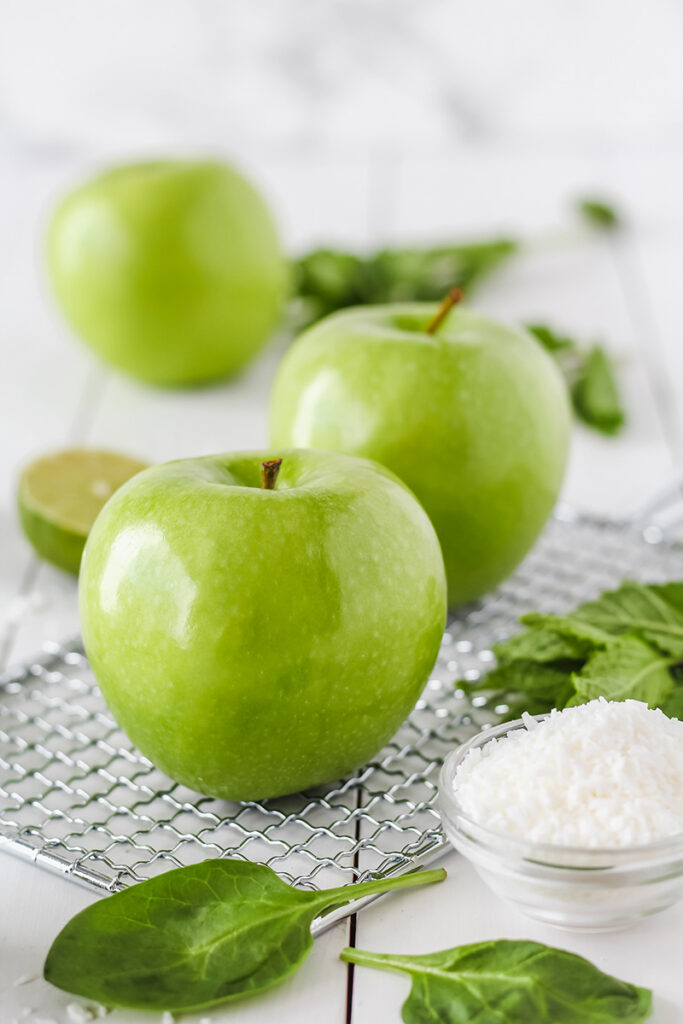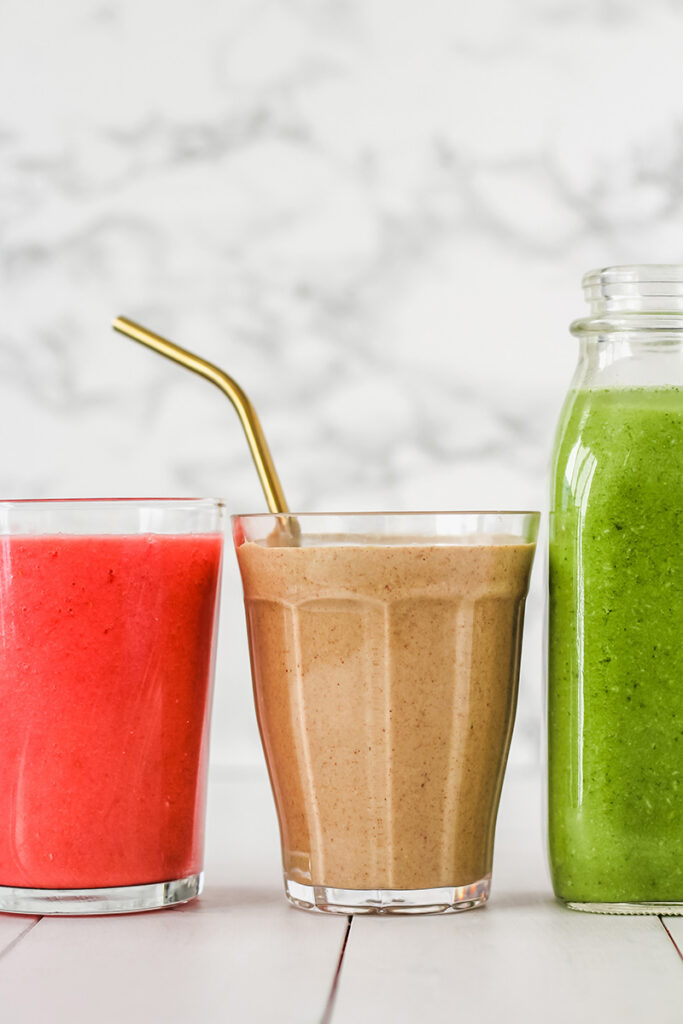7 Healthy Eating Habits to Try This Year
One of the biggest challenges for healthy eating is changing your current eating habits. If you’re used to eating fast food or processed foods, it can be hard to know where to start when it comes to making healthier choices.
This will be different for everyone, so before you start adding new healthy eating habits to your day, you need to understand what healthy means to you.
Once you know your goals, you can start making changes to your diet. If you’re not sure where to start, here are the 7 healthy eating habits to try this year!

Defining Healthy Eating for You
The first step in changing your eating habits is to define what healthy means to you. This will be different for everyone, so it’s essential to take the time to figure out what your specific goals are.
Are you trying to lose weight, gain muscle, or feel better overall? Your goals will help guide your decisions regarding choosing healthy foods.
For example, if you’re trying to lose weight, you’ll want to focus on eating lower in calories and fat foods foods. On the other hand, if you’re trying to gain muscle, you’ll want to make sure you’re eating enough protein.
Once you know your goals, you can start making changes to your diet. This might involve adding or removing certain foods or adjusting the portion sizes of what you’re eating.
Some people find it helpful to keep a food journal to track their eating habits. This can be a helpful tool for seeing where you need to make changes.
Others find it helpful to meal plan ahead of time. This can make it easier to eat healthy since you’ll already have a plan for what you’re going to eat.

What You Need to Change
Once you have looked at everything you eat and analyzed it, you will then be able to see what areas need improvement.
It may be that you are eating too many processed foods or not enough fruits and vegetables. Perhaps you’re eating out too often or not getting enough protein.
You will also want to take a look at your portion sizes. Overeating is a common problem, even for people who are eating healthy foods. Make sure you’re not eating more than you should be.
It’s also important to ensure you’re getting enough of the proper nutrients. This includes vitamins, minerals, and fiber.
If you’re not sure what you need, talk to your doctor or a registered dietitian. They can help you figure out what changes you need to make.
No matter what approach you take, changing your eating habits is a process that takes time and effort. But it’s worth it to make the switch to a healthier lifestyle.

7 Healthy Eating Habits You Can Try Right Now
Now, let’s look at 7 healthy habits you can start implementing right away. Although you may not make all of these changes overnight, you can start making small steps towards a healthier diet today.
1. Eat More Veggies and Fruits
Aim to fill half your plate with vegetables and fruits at every meal. Eating more of these foods provides you with important nutrients like vitamins, minerals, fiber, and antioxidants. Plus, they’re low in calories and can help you feel full longer.
You can aim for at least five servings of vegetables and fruits a day. But make sure you diversify your options to get all the nutrients they provide.
Also, focusing on fiber from vegetables, fruits, and whole grains can help reduce your risk of heart disease and help with blood sugar control.
2. Limit Processed Foods
Processed foods are usually high in added sugar, sodium, and fat, which can be bad for your health if eaten in large amounts. Try to limit these types of foods as much as possible.
Instead, focus on eating whole foods like fruits, vegetables, lean proteins, whole grains, beans, and legumes. These foods are not only healthier but can help you feel more satisfied.
Of course, life happens and there will be days when processed foods are the only option you can find. And that’s just fine. You need to eat anything anyway, right?
But, try to keep these foods to a minimum and focus on eating real, whole foods most of the time. You can also opt for healthier versions of processed foods like low-sodium canned beans and 100% whole grain bread.
3. Choose Whole Grains
Whole grains are an excellent source of essential nutrients like fiber, B vitamins, and minerals. They’re also packed with antioxidants that can help protect your cells from damage.
When choosing whole grains, look for items that say “100% whole grain” or “whole wheat” on the label. Examples include quinoa, oats, and brown rice. However, if you cannot eat gluten, look for gluten-free options like buckwheat or millet.
4. Get Enough Protein
Protein is essential for good health and it helps to keep you feeling full longer. Aim to get 10-30% of your daily calories from protein sources such as lean meats, fish, eggs, nuts, seeds, and legumes.
If you’re vegetarian or vegan, focus on eating a variety of plant-based proteins like tofu, tempeh, and seitan. You can also combine foods to make complete proteins such as rice with beans or quinoa with lentils.

5. Meal Planning Is Key
One of the biggest mistakes people make with meal planning is that they don’t plan ahead. You don’t need to be a busy working mom to take meal planning and meal prepping seriously.
Planning ahead for your meals can save you time and money, while also helping you stick to healthier eating habits.
Start by making a grocery list, then look for recipes that contain foods on your list. This will help you stay organized and make sure you’re not eating the same thing every day.
6. Reduce Salt, Sugar, and Artificial Sweeteners
Although you cannot entirely cut out salt, sugar, or artificial sweeteners from your diet, you can reduce the amount you consume.
Salt can raise your blood pressure, so try to limit it in your meals. Instead of adding salt to your cooking, opt for herbs and spices like garlic powder and turmeric. They will help to add flavor without the extra sodium.
Sugar is okay in moderation but it’s important to be aware of how much you’re consuming per day. Try to limit added sugars and opt for natural sweeteners like honey or maple syrup instead.
Finally, if you can’t give up artificial sweeteners, try using them sparingly as some studies have suggested that they can be damaging to your health, according to this article from The New York Times!
7. Practice Mindful Eating
For some people, mindful eating may sound like a cliché, but it’s actually an important part of creating healthy eating habits.
Mindful eating means being aware of what you’re eating. Take time to savor the taste and texture of your food as well as paying attention to how full or hungry you feel before, during, and after a meal.
It’s also important to avoid distractions while you eat. Try to avoid eating in front of the TV or scrolling through social media on your phone while you eat.
By being mindful of what you’re eating, it can help you to make better food choices and stick to healthier habits in the long run.

How to Develop These Healthier Eating Habits
When you have defined healthy eating and figured out what you need to change, it is time for the next step: developing these healthier habits. This will take some time and effort, but it is possible to make lasting changes.
Healthier eating habits are different for everyone, so it’s important to find what works best for you and your lifestyle.
You may need to experiment with different approaches before you find one that sticks. Just because a certain diet worked for someone else doesn’t mean it will work for you.
One way to develop healthier eating habits is to make gradual changes. Start by swapping out one unhealthy food for a healthier option.
For example, if you typically have cereal for breakfast, try switching to oatmeal instead. Or, if you usually eat a fast food lunch, pack a healthier lunch from home instead.
You can also try adding new foods to your diet instead of taking anything away. This might mean adding a serving of vegetables to your dinner or having fruit for dessert instead of cake or cookies.
Making these small changes can be helpful because it won’t feel like you’re making a drastic change to your diet. And, over time, these small changes can add up to big results.
Another approach is to make a more radical change, such as going vegan or following a very restrictive diet. This might work well for some people, but it’s not necessary for everyone.
If you do make a radical change, be sure to do your research first and talk to your doctor or a registered dietitian to make sure it’s safe for you.
Final Thoughts on Healthy Eating Habits
Creating healthy eating habits isn’t easy, but it is possible. It’s also important to keep in mind that healthy eating looks different for everyone. What works for one person may not work for another.
Experiment with different approaches and find what works best for you and your lifestyle. Start small and make simple changes that you can stick to over time.
Remember, healthy eating isn’t about perfection; it’s about balance. Once you can balance the healthy and unhealthy foods in your diet, you’ll be on your way to developing healthier eating habits for life.

Frequently Asked Questions
Before you start on your journey to creating healthier eating habits, here are some frequently asked questions about healthy eating. You can refer to this list anytime you have questions or need guidance.
Of course, if you need professional health, please always consult with your doctor or registered dietitian for further advice.
Q: What are the 7 foods I should eat every day?
A: There is no single list of foods that every person should eat every day. Instead, focus on eating a variety of nutritious foods from all the food groups like fruits, vegetables, grains, proteins, and dairy.
Although you should not just focus on any specific foods, there are some key nutrients you should strive for in your diet. These include fiber, calcium, folate, iron, zinc and vitamins A, C and D. All of them can be found in a wide variety of foods, so there’s no need to eat the same thing every day.
Q: Are there any tips for making healthy eating easier?
A: Yes! Here are a few tips that can make healthy eating easier:
- Meal plan ahead of time. This will help you stay organized and make sure you’re not eating the same thing every day.
- Choose nutrient-dense foods, like fruits, vegetables, whole grains, legumes, nuts and seeds.
- Make small changes, like switching to whole grains or reducing added sugars.
- Add more variety and flavor with herbs and spices.
- Practice mindful eating by taking the time to savor your food without distractions.
- Don’t be too hard on yourself if you slip up; just get back on track as soon as possible.
By following these tips, you’ll have a better chance of sticking to your healthy eating habits in the long run without feeling deprived.
Q: How are healthy eating habits developed?
A: Just like any other good habits, healthy eating habits are developed over time. Start by defining what “healthy” means to you and figure out which areas of your diet need improvement.
Then, make small changes gradually and experiment with different approaches until you find one that works for you. Be sure to also add variety to your diet and practice mindful eating. With patience, persistence, and consistency, you can develop healthy eating habits for life.
Q: What are good eating habits for students?
A: As a student, you may find it difficult to maintain healthy eating habits due to a lack of time or money. But, there are many simple changes you can make to improve your diet.
For example, try preparing meals in advance and packing them for lunch the next day. This will save you time and money while also ensuring that you’re getting nutrient-dense foods like fruits, vegetables, and whole grains.
You can also snack healthier by opting for items like yogurt, nuts, or dried fruit instead of processed snacks like chips or candy bars. And don’t forget to stay hydrated! Staying properly hydrated is essential for your concentration and energy levels.
Finally, try to make time for self-care activities like going for a walk or reading a book. This will help reduce stress and improve your overall well-being. With good planning and effort, it is possible to maintain healthy eating habits even as a student.

Q: Are there any tips for eating healthier when dining out?
A: Eating out can be tricky because you don’t always know what ingredients are being used and it can be hard to make healthy choices. Here are some tips for eating healthier when dining out:
- Choose restaurants that offer healthier options like salads, soups, and grilled proteins.
- Look for menu items made with whole grains or lean proteins.
- Avoid dishes that are fried or cheesy.
- Opt for smaller portions and share if possible.
- Ask the server to replace fries or other unhealthy sides with a salad or steamed vegetables.
- Skip dessert and opt for healthier options like fresh fruit instead.
Don’t feel guilty or ashamed if you choose to eat or not to eat something. Eating out is meant to be an enjoyable experience, so just do your best to make healthier choices that fit within your diet and lifestyle. Resources
Q: What is the key to a healthy diet?
A: The key to a healthy diet is balance. Eating too little or too much of certain foods is not healthy and can lead to nutrient deficiencies or health problems. Instead, strive for variety and moderation in your diet by including a wide range of nutritious foods from all the food groups.
Another key to a healthy diet is mindful eating. Don’t eat while distracted; take the time to savor your food and really enjoy it. This will help you become more conscious of your eating habits and make healthier choices in the future.
Finally, it’s important to stay consistent with your healthy eating habits. Allowing yourself occasional treats is fine, but don’t overindulge or fall off track. With dedication and patience, you can learn to make healthy eating a lifestyle rather than just a short-term goal.
Q: What are the effects of healthy eating habits?
A: Eating healthy can have many positive effects on your overall health and well-being. These include improved energy levels, better concentration and focus, weight management, reduced risk of chronic diseases like heart disease and diabetes, stronger bones and muscles, improved digestion, better moods and mental health, and even a longer life expectancy.
Of course, all these effects will not come overnight; it usually takes some time and effort to develop healthy eating habits. But with effort and dedication, you can reap the benefits in no time!
So don’t wait; start making small changes that will help you achieve a healthier lifestyle today, and you’ll thank yourself for it in the future.





